1. AI’s Ethical Concerns in Privacy
As artificial intelligence continues to evolve and integrate into our daily lives, one of the most pressing ethical concerns is its impact on privacy. Let’s explore the key issues surrounding AI and privacy.
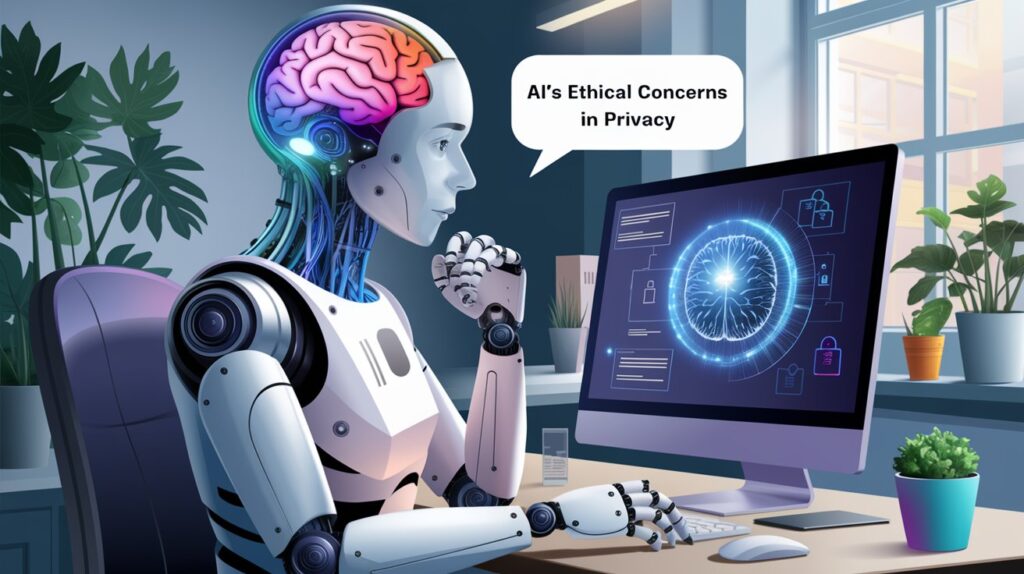
A. Surveillance and Privacy Invasion
AI-powered surveillance systems have become increasingly sophisticated, raising significant privacy concerns. These systems can now:
- Identify individuals through facial recognition
- Track movements and behaviors in public spaces
- Analyze communication patterns and social interactions
| Surveillance Method | Privacy Implications |
|---|---|
| Facial Recognition | Identity theft risks, unauthorized tracking |
| Behavioral Analysis | Profiling, potential discrimination |
| Communication Monitoring | Loss of personal privacy, potential misuse of information |
The widespread use of these technologies blurs the line between public and private spaces, potentially creating a society where constant surveillance becomes the norm.
B. Data Breaches and Security Risks
AI systems often rely on vast amounts of personal data, making them attractive targets for cybercriminals. The consequences of data breaches involving AI can be severe:
- Exposure of sensitive personal information
- Financial losses for individuals and organizations
- Identity theft and fraud
- Erosion of trust in AI technologies
To mitigate these risks, organizations must prioritize robust security measures and implement strict data protection protocols.
C. Lack of Transparency in Data Collection
Many AI applications collect data in ways that are not immediately apparent to users. This lack of transparency raises ethical questions about:
- Informed consent: Are users fully aware of what data is being collected and how it’s used?
- Data ownership: Who has the right to access and control personal data?
- Algorithm transparency: How are AI systems making decisions based on collected data?
To address these concerns, there’s a growing call for:
- Clear and accessible privacy policies
- User-friendly controls for data sharing preferences
- Increased transparency in AI decision-making processes
As we delve deeper into the ethical implications of AI, it’s crucial to consider how these privacy concerns intersect with other areas, such as decision-making and human rights.
2. AI’s Ethical Concerns in Decision Making
As we delve deeper into the ethical concerns surrounding AI, it’s crucial to examine how these systems impact decision-making processes across various sectors. The increasing reliance on AI for critical decisions raises important questions about fairness, transparency, and accountability.
Bias and Discrimination in Algorithms
AI algorithms, despite their perceived objectivity, can perpetuate and even amplify existing biases. This occurs due to several factors:
- Training data bias
- Algorithmic bias
- Lack of diversity in AI development teams
Here’s a breakdown of how these biases can manifest in different sectors:
| Sector | Example of Bias |
|---|---|
| Finance | Credit scoring algorithms favoring certain demographics |
| Healthcare | Diagnostic systems less accurate for underrepresented groups |
| Criminal Justice | Predictive policing tools disproportionately targeting minorities |
| Employment | Resume screening systems favoring male candidates |
To mitigate these biases, organizations must:
- Diversify their AI development teams
- Regularly audit and test algorithms for fairness
- Use representative and balanced training data
- Implement transparency measures to allow scrutiny of AI decision-making processes
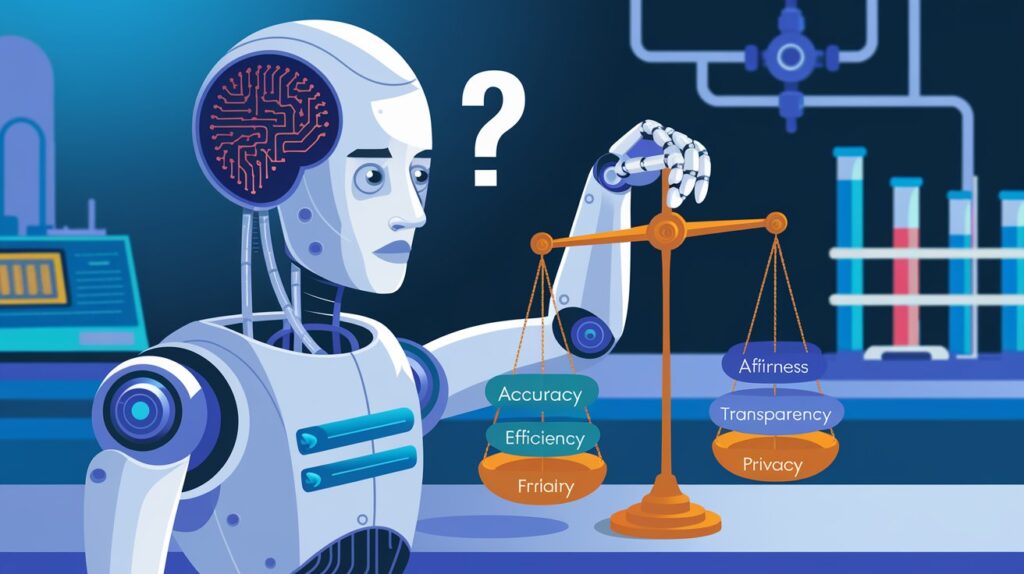
Lack of Accountability in AI Decisions
As AI systems become more complex and autonomous, determining responsibility for their decisions becomes increasingly challenging. This lack of accountability raises several concerns:
- Difficulty in assigning blame for harmful outcomes
- Challenges in legal and ethical frameworks
- Erosion of human agency and responsibility
To address these issues, consider the following approaches:
- Implement explainable AI (XAI) techniques
- Establish clear chains of responsibility for AI systems
- Develop industry-wide standards for AI accountability
- Encourage ongoing human oversight and intervention in critical decision-making processes
As AI continues to play a larger role in decision-making across various domains, addressing these ethical concerns becomes paramount. By actively working to mitigate biases and establish clear accountability measures, we can harness the power of AI while safeguarding against its potential negative impacts. Next, we’ll explore how AI’s growing influence affects job markets and employment opportunities.
3. AI’s Ethical Concerns in Job Displacement
As we delve deeper into the ethical concerns surrounding AI, we must address one of the most pressing issues: job displacement. The rapid advancement of artificial intelligence technologies is reshaping the employment landscape, raising important questions about the future of work and its societal implications.
Automation and Job Loss
The rise of AI-driven automation is transforming industries at an unprecedented pace, leading to significant job displacement across various sectors. This shift presents both opportunities and challenges:
- Sectors at risk: Industries such as manufacturing, customer service, and transportation are particularly vulnerable to AI-driven automation.
- Skill obsolescence: Many traditional skills are becoming outdated as AI systems take over routine tasks.
- Economic impact: Job losses can lead to increased unemployment rates and economic instability in affected communities.
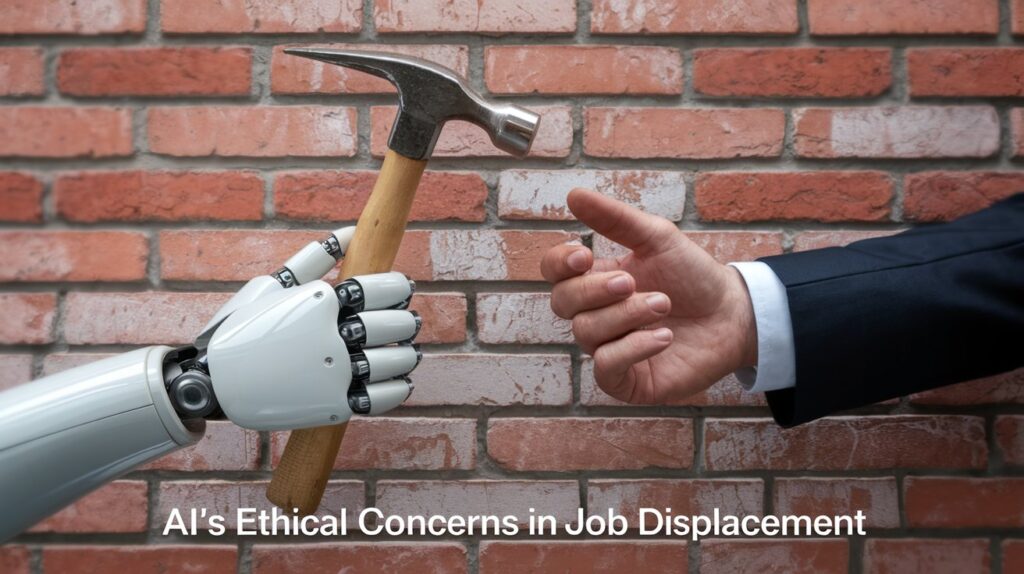
To better understand the impact of AI on job displacement, consider the following comparison:
| Aspect | Pre-AI Era | AI-Driven Era |
|---|---|---|
| Job security | Higher stability in traditional roles | Increased volatility and job turnover |
| Skill requirements | Emphasis on specialized, repetitive skills | Focus on adaptability and continuous learning |
| Career paths | Linear and predictable | Non-linear and requiring frequent pivots |
| Workforce composition | Dominated by full-time employees | Shift towards gig economy and freelance work |
Impact on Workforce Diversity
The effects of AI-driven job displacement extend beyond mere numbers, potentially exacerbating existing inequalities in the workforce:
- Gender disparities: Certain AI-vulnerable jobs may disproportionately affect women or men, depending on the industry.
- Age discrimination: Older workers may face greater challenges in adapting to AI-driven changes in the job market.
- Socioeconomic divides: Lower-income workers in routine jobs may be more susceptible to displacement, widening the gap between socioeconomic classes.
- Educational barriers: The demand for high-skilled AI-related jobs may create new opportunities for those with advanced education while leaving others behind.
As we confront these challenges, it becomes crucial to explore strategies for mitigating the negative impacts of AI on job displacement and ensuring a more equitable transition to an AI-driven economy. In the next section, we’ll examine how AI’s growing autonomy raises additional ethical concerns that demand our attention.
4. AI’s Ethical Concerns in Autonomy
As we delve deeper into the ethical concerns surrounding AI, we now turn our attention to a particularly contentious issue: autonomy. The increasing capabilities of AI systems to operate independently raise significant questions about responsibility, control, and the potential consequences of autonomous decision-making.
Autonomous Weapons and Military Use
The development of autonomous weapons systems represents one of the most alarming applications of AI technology. These systems, capable of selecting and engaging targets without human intervention, pose serious ethical dilemmas:
- Lack of human judgment: Autonomous weapons lack the ability to make complex ethical decisions that human soldiers can in combat situations.
- Potential for unintended harm: The absence of human oversight increases the risk of civilian casualties and collateral damage.
- Lowered threshold for armed conflict: The reduced risk to human personnel may make nations more willing to engage in warfare.
| Concern | Potential Consequence |
|---|---|
| Lack of human judgment | Violation of international humanitarian law |
| Unintended harm | Increased civilian casualties |
| Lowered conflict threshold | More frequent armed conflicts |
The international community is grappling with how to address these concerns, with some calling for a preemptive ban on autonomous weapons systems.
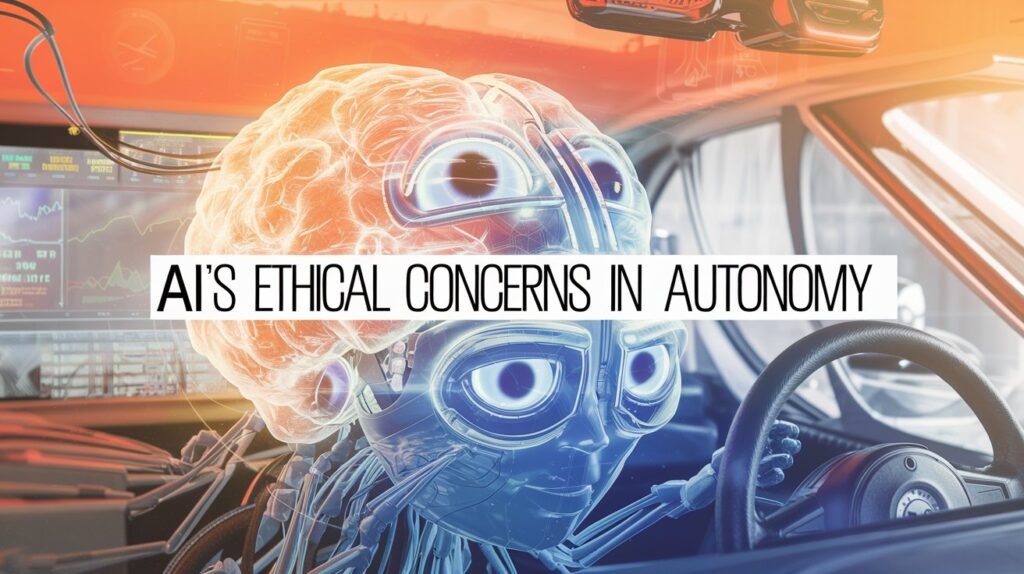
AI Control and Regulation Challenges
Beyond the military sphere, the broader issue of AI control and regulation presents significant challenges:
- Unpredictability: As AI systems become more complex, their decision-making processes become less transparent and harder to predict.
- Alignment problem: Ensuring that AI systems’ goals and actions align with human values and intentions is an ongoing challenge.
- Regulatory lag: The rapid pace of AI development often outstrips the ability of regulatory bodies to create appropriate governance frameworks.
The difficulty in controlling and regulating AI systems raises fundamental questions about human autonomy and our ability to shape the future of technology. As AI becomes more integrated into critical infrastructure and decision-making processes, the need for robust governance mechanisms becomes increasingly urgent.
Next, we’ll explore how these autonomy concerns intersect with fundamental human rights, examining the potential impacts of AI on individual freedoms and societal norms.
5. AI’s Ethical Concerns in Human Rights
As we delve deeper into the ethical concerns surrounding AI, we encounter a particularly troubling aspect: its potential impact on human rights. This section explores two critical areas where AI poses significant challenges to our fundamental rights and societal values.
A. Social Manipulation and Propaganda
AI-powered tools have become increasingly sophisticated in their ability to influence human behavior and shape public opinion. This raises serious concerns about the potential for social manipulation and the spread of propaganda on an unprecedented scale.
- Targeted Misinformation: AI algorithms can create and distribute highly personalized content, making it easier to spread false information tailored to specific individuals or groups.
- Echo Chambers: AI-driven recommendation systems can reinforce existing beliefs, leading to increased polarization and reduced exposure to diverse viewpoints.
- Deepfakes: AI-generated fake audio and video content can be used to manipulate public perception and undermine trust in institutions.
| AI Tool | Potential Misuse | Impact on Human Rights |
|---|---|---|
| Natural Language Processing | Generation of fake news articles | Freedom of information |
| Computer Vision | Creation of deepfake videos | Right to privacy and dignity |
| Recommendation Algorithms | Formation of echo chambers | Freedom of thought and expression |
B. Potential Threat to Human Morality and Values
As AI systems become more integrated into our daily lives and decision-making processes, there’s a growing concern about their impact on human morality and values.
- Erosion of human agency: Over-reliance on AI for decision-making may lead to a diminished sense of personal responsibility and moral reasoning.
- Algorithmic bias: AI systems trained on biased data can perpetuate and amplify existing societal prejudices, threatening the right to equal treatment.
- Dehumanization: The increasing use of AI in social interactions may lead to a reduction in empathy and human connection.
- Ethical relativism: As AI systems are deployed globally, they may struggle to navigate diverse cultural and moral frameworks, potentially imposing a homogenized set of values.
Conclusion
The potential for AI to infringe upon human rights and reshape our moral landscape is a critical concern that requires immediate attention and proactive measures. As we continue to develop and deploy AI technologies, it’s crucial to establish robust ethical guidelines and regulatory frameworks to safeguard our fundamental rights and preserve human dignity.
As we navigate the rapidly evolving landscape of artificial intelligence, it’s crucial to remain vigilant about the ethical challenges it presents. From privacy concerns and biased decision-making to job displacement, loss of human autonomy, and potential human rights violations, AI’s impact on our society is profound and far-reaching.
By addressing these ethical concerns head-on, we can harness the power of AI while safeguarding our values and protecting vulnerable populations. It’s up to us – developers, policymakers, and users alike – to shape the future of AI responsibly. Let’s commit to ongoing dialogue, ethical guidelines, and proactive measures to ensure that AI serves humanity’s best interests while minimizing its potential dark side.







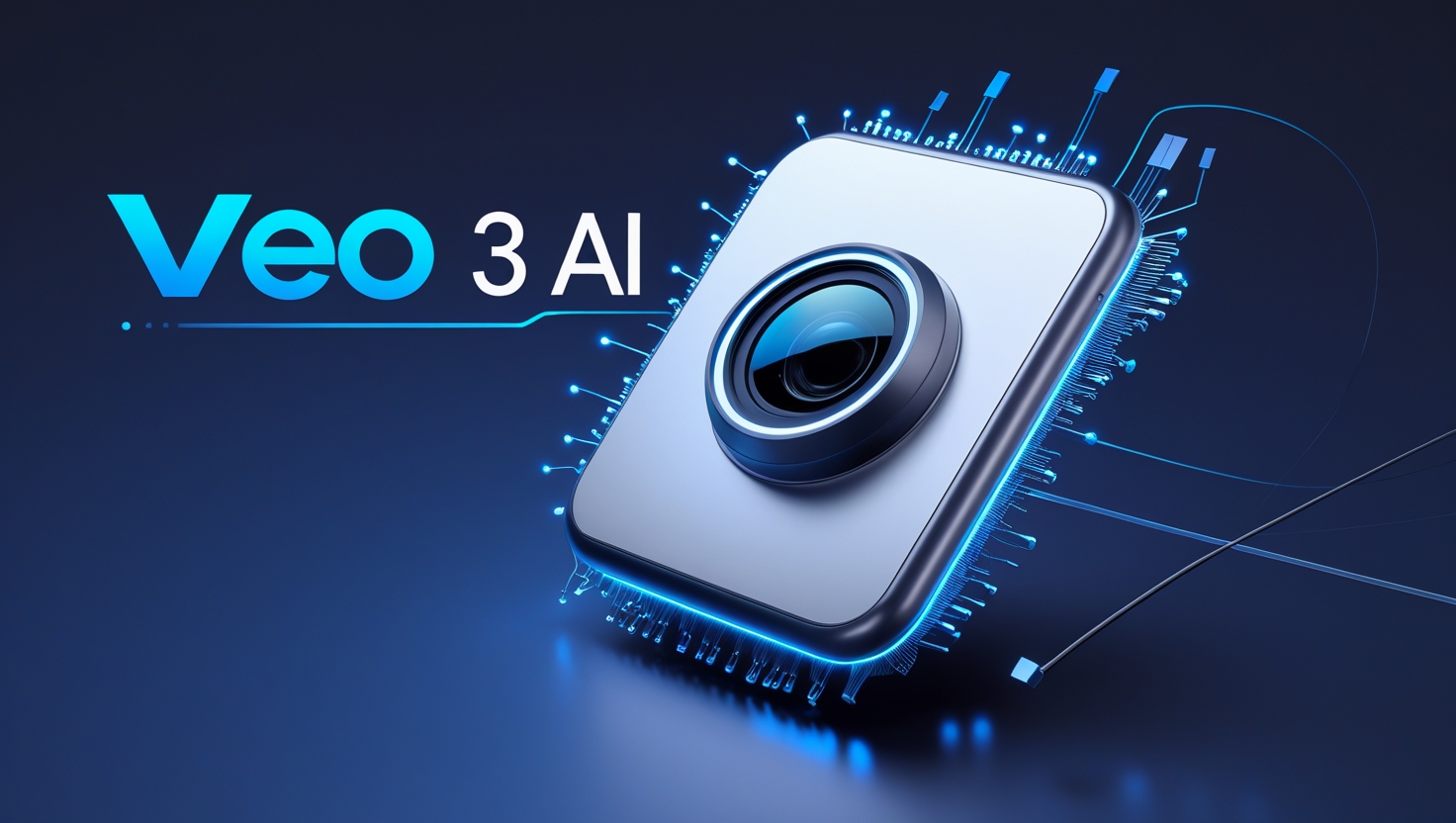



5 thoughts on “AI’s Dark Side: 5 Ethical Concerns You Can’t Ignore”